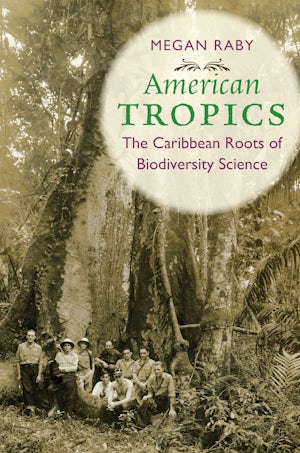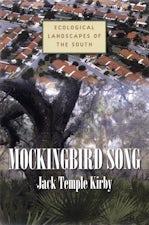American Tropics
The Caribbean Roots of Biodiversity Science
By Megan Raby
336 pp., 6.125 x 9.25, 29 halftones, 2 maps, 1 table, notes, bibl., index
-
Paperback ISBN: 978-1-4696-3560-6
Published: November 2017 -
Hardcover ISBN: 978-1-4696-3559-0
Published: November 2017 -
E-book EPUB ISBN: 978-1-4696-3561-3
Published: October 2017 -
E-book PDF ISBN: 979-8-8908-5254-0
Published: October 2017
Flows, Migrations, and Exchanges
Buy this Book
- Paperback $32.50
- Hardcover $99.00
- E-Book $19.99
For Professors:
Free E-Exam Copies
Awards & distinctions
Philip J. Pauly Prize, History of Science Society
Considering U.S. biological fieldwork from the era of the Spanish-American War through the anticolonial movements of the 1960s and 1970s, this study combines the history of science, environmental history, and the history of U.S.–Caribbean and Latin American relations. In doing so, Raby sheds new light on the origins of contemporary scientific and environmentalist thought and brings to the forefront a surprisingly neglected history of twentieth-century U.S. science and empire.
About the Author
Megan Raby is associate professor of history at the University of Texas at Austin.
For more information about Megan Raby, visit
the
Author
Page.
Reviews
"Skillfully shows the strategic and serendipitous ways field science coincided with political and economic imperial pursuits in the twentieth century. This enlarged context greatly expands how we can look at both the process and knowledge of science as products of social contingencies."--Edge Effects
“This book is eminently recommendable. Raby has given us needed insight into the history of tropical American science within the context of imperial expansion and the construction of Caribbean hegemony.”--H-Net Reviews
“Raby’s study contributes a crucial and expansive narrative of biological connections and a politically informed evolution of ideas. Like the best histories, her work opens avenues for further research on an important and timely subject.”--Environmental History
“Thorough and ground-breaking . . . . Raby marshals a breathtaking amount of evidence.”--American Historical Review
“A remarkably persuasive genealogy of ideas. . . . An important contribution to our understanding of science in the Caribbean, and of the way supposedly universal knowledge is always a local hybrid.”--Brill Journals
“American Tropics is not only the best book we have on the scientific reinvention of ‘the tropics’ across the twentieth century, but it is also a tour de force demonstration of how the ideal of biodiversity emerged from place-based field practices. This is a history that matters to the future of tropical science and conservation.”--Paul Sutter, University of Colorado Boulder



